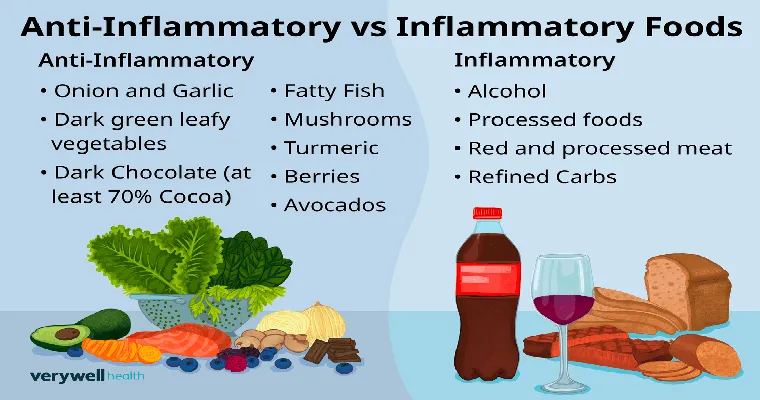"Inflammation" is a natural response of the body to injury or infection, but chronic inflammation can lead to serious health issues, including heart disease, diabetes, and autoimmune disorders. Addressing "inflammation" is crucial for maintaining overall health and well-being. Here are five effective strategies to help you fight inflammation and promote a healthier lifestyle.
1. Adopt an Anti-Inflammatory Diet
One of the most powerful ways to combat "inflammation" is through your diet. Incorporating foods that are rich in antioxidants, healthy fats, and fiber can help reduce inflammation. Focus on including:
"Fruits and vegetables": Berries, leafy greens, and cruciferous vegetables are particularly effective.
"Healthy fats": Omega-3 fatty acids found in fatty fish, flaxseeds, and walnuts can significantly lower inflammation.
"Spices": Turmeric and ginger are known for their anti-inflammatory properties and can be easily added to various dishes.
2. Stay Active with Regular Exercise
Regular physical activity is essential for reducing "inflammation". Exercise helps to lower levels of inflammatory markers in the body and can also improve immune function. Aim for at least 150 minutes of moderate-intensity aerobic exercise each week, combined with strength training exercises on two or more days. Activities like walking, swimming, and cycling can be excellent choices to keep your body moving and combat inflammation.
3. Manage Stress Effectively
Chronic stress is a significant contributor to "inflammation". When you are stressed, your body produces hormones that can lead to increased inflammation. Implementing stress management techniques such as mindfulness meditation, deep breathing exercises, or yoga can help alleviate stress and lower inflammation levels. Establishing a regular relaxation routine can have lasting benefits for both your mental and physical health.
4. Prioritize Quality Sleep
Getting enough restorative sleep is vital for regulating the body's inflammatory response. Poor sleep patterns have been linked to increased levels of inflammatory markers. Aim for 7 to 9 hours of quality sleep each night by establishing a consistent sleep schedule and creating a calming bedtime routine. Ensuring your sleep environment is conducive to rest can make a significant difference in your overall health and inflammation levels.
5. Stay Hydrated
Hydration plays a crucial role in maintaining body function and reducing "inflammation". Water helps to flush out toxins and supports cellular health. Aim to drink at least 8 glasses of water a day, adjusting for activity level and climate. Herbal teas and infused waters can also be beneficial alternatives to stay hydrated while providing additional anti-inflammatory benefits.
In conclusion, fighting "inflammation" requires a holistic approach that includes dietary changes, regular exercise, stress management, quality sleep, and proper hydration. By adopting these five strategies, you can significantly improve your health and reduce the risk of chronic inflammatory diseases. Start incorporating these tips into your daily routine today for a healthier, inflammation-free life.





